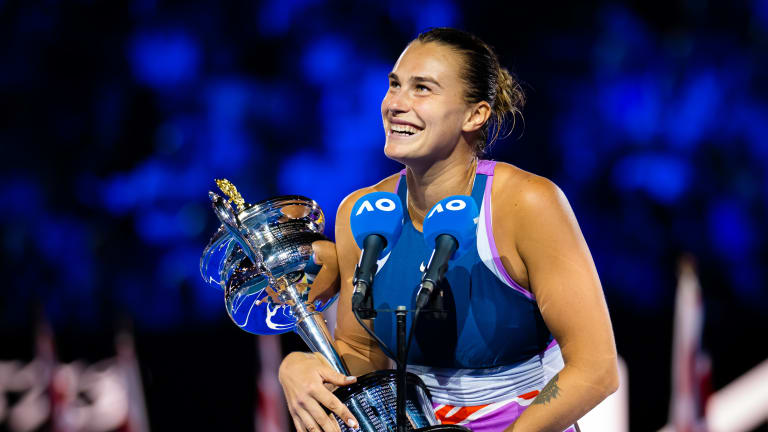Australian Open
By reminding herself she was built for big occasions, Aryna Sabalenka soars to Australian Open glory
By Jan 28, 2023Australian Open
Australia at Last: Reflections on a first trip to the AO
By Jan 29, 2025Australian Open
Alexander Zverev must elevate his game when it most counts—and keep it there
By Jan 27, 2025Australian Open
Jannik Sinner draws Novak Djokovic comparisons from Alexander Zverev after Australian Open final
By Jan 26, 2025Australian Open
Alexander Zverev left to say "I'm just not good enough" as Jannik Sinner retains Australian Open title
By Jan 26, 2025Australian Open
Jannik Sinner is now 3-0 in Grand Slam finals after winning second Australian Open title
By Jan 26, 2025Australian Open
Taylor Townsend and Katerina Siniakova win second women's doubles major together at the Australian Open
By Jan 26, 2025Australian Open
Madison Keys wins her first Grand Slam title at Australian Open by caring a little bit less
By Jan 25, 2025Australian Open
Henry Patten, Harri Heliovaara shrug off contentious first set to win Australian Open doubles title
By Jan 25, 2025Australian Open
Aryna Sabalenka takes a rare loss in Australian Open slugfest
By Jan 25, 2025Australian Open
By reminding herself she was built for big occasions, Aryna Sabalenka soars to Australian Open glory
In a blazing final, Sabalenka and Elena Rybakina matched each other ace for ace and winner for winner, until the No. 5 seed found another gear, and her first Grand Slam title.
Published Jan 28, 2023
Advertising

Sabalenka will return to her career-high ranking of No. 2 on Monday.
© 2023 Robert Prange